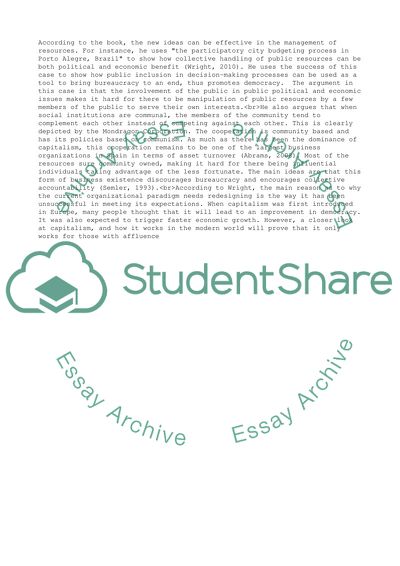Cite this document
(“Utopian Thinking & Practical Leadership Alternatives Essay”, n.d.)
Utopian Thinking & Practical Leadership Alternatives Essay. Retrieved from https://studentshare.org/management/1630688-utopian-thinking-practical-leadership-alternatives
Utopian Thinking & Practical Leadership Alternatives Essay. Retrieved from https://studentshare.org/management/1630688-utopian-thinking-practical-leadership-alternatives
(Utopian Thinking & Practical Leadership Alternatives Essay)
Utopian Thinking & Practical Leadership Alternatives Essay. https://studentshare.org/management/1630688-utopian-thinking-practical-leadership-alternatives.
Utopian Thinking & Practical Leadership Alternatives Essay. https://studentshare.org/management/1630688-utopian-thinking-practical-leadership-alternatives.
“Utopian Thinking & Practical Leadership Alternatives Essay”, n.d. https://studentshare.org/management/1630688-utopian-thinking-practical-leadership-alternatives.


